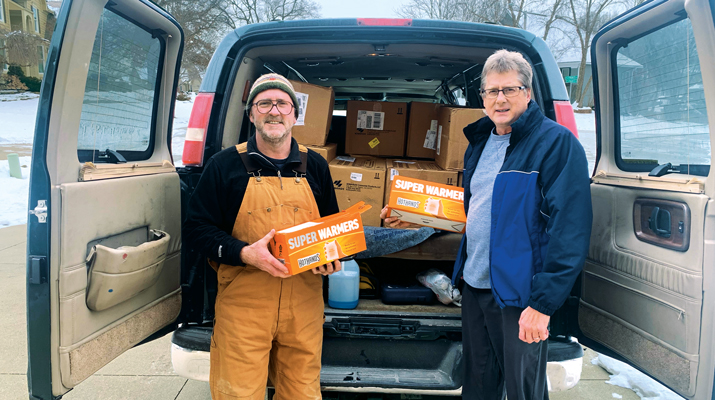Efficient retrieval of information ensures customer, employee safety
“Information technology and business are becoming inextricably interwoven. I don’t think anybody can talk meaningfully about one without talking about the other.” – Bill Gates
Propane marketers always identify safety as their highest priority. Actions, however, are not always consistent with words.
Many propane marketers rely on outdated processes for the retrieval of important safety and risk management information.
John Hansen, a principal at Schlee, Huber, McMullen & Krause PC and a propane industry legal expert, stresses the importance of propane safety.
“Propane marketers must have organized and accessible files that can be effectively used by management to enhance the safety of all employees and customers,” he says.
Propane managers, through no fault of their own, often lack the information needed to maximize the safety of their customers and employees.
A few short questions may help you determine if your company falls into that category.
- Does your company simply file inspection and safety records and allow them to gather dust?
- Does your company have a systematic and accurate way to follow up on inspections and service records?
- Does your company employ a system using proactive alerts when regulators need to be replaced, corrugated stainless steel tubing upgrades are needed or similar work needs to be done?
- Can your company identify all warnings provided to its consumers?
If your company is not taking the necessary steps to ensure it has proper documentation on file and know when follow-up is needed, it might be time to weigh industry options that provide the efficient retrieval of information.
Consider how a focus on documenting, storing and retrieving a variety of service and safety information might have changed the outcome in the following lawsuit:
The propane marketer installs a new tank at a customer’s vacation home and claims to have done a leak test. The marketer’s employee fails to fill out the part of the inspection form relating to the leak test. One week later, the customer, his wife and his granddaughter go to the home. The home explodes shortly after they arrive, resulting in the death of the customer and his wife and injury to the granddaughter. An investigation ensues and a question arises regarding the cause of the explosion.
The marketer claims that the leak arose following the initial tank set and leak test. The plaintiffs claim that the leak test was never done and that the leak would have been discovered had it been performed. Consistent with a theme heard in many cases, plaintiffs argue “if it’s not documented, it was never done.”
Hundreds of thousands of dollars are spent defending the case. Dozens of depositions are taken, including numerous depositions of the marketer’s employees. That results in stress, unproductive downtime for the employees and bad publicity. The case settles for a substantial but confidential amount, in part because the leak test was not documented.
Had a company process or system been implemented, it would have indicated that the customer’s leak test was not on file and preemptive corrective action could have been undertaken.
“In the legal world, it’s all about compliance, safety and accountability,” says Mike DiGiorgio, president of Silverback Consulting Group and the former head of safety at Paraco Gas.
Assess your process and technology
Assess the business processes your company employs with respect to the documentation, storage and retrieval of field safety information.
Can this data be assimilated into meaningful and useful management reports? Can proactive alerts be set for tank expirations, cathodic protection inspections and other critical safety functions? Does your company’s process truly make safety the highest priority?
If the answer to that last question is “no,” take time out to assess available technology that will help your company comply with best safety practices, lower insurance premiums and attract potential purchasers. Make safety your highest priority and improve your peace of mind.
Tim Quinn is a regional vice president for P3 Propane Safety. His company specializes in supplying, managing and storing safety and risk mitigation technology for propane marketers. He can be reached at 443-510-2613 or tim_quinn@bostonenv.com.
















